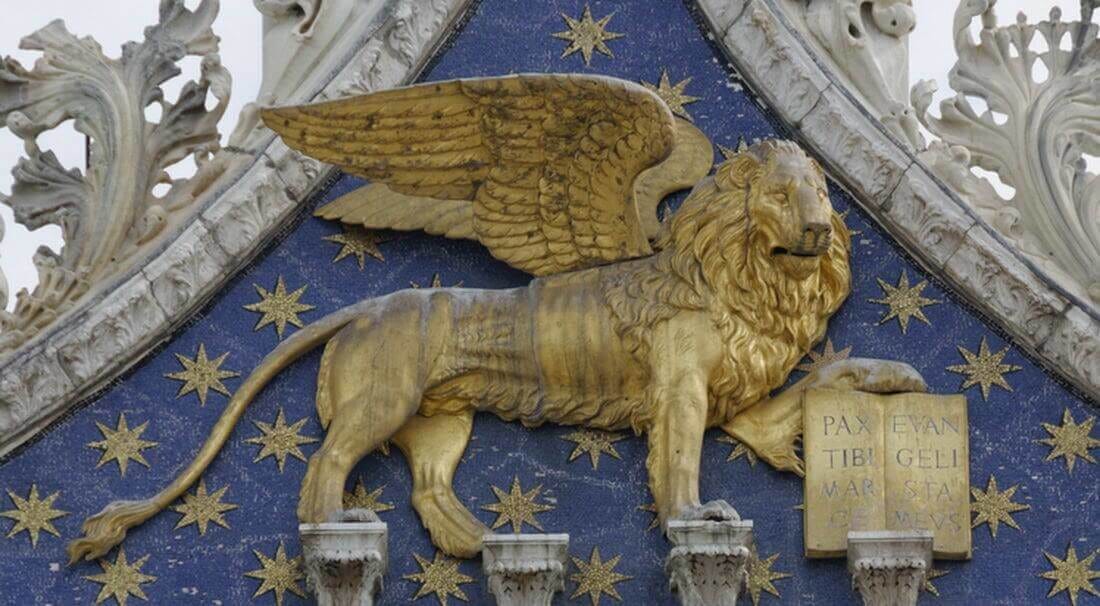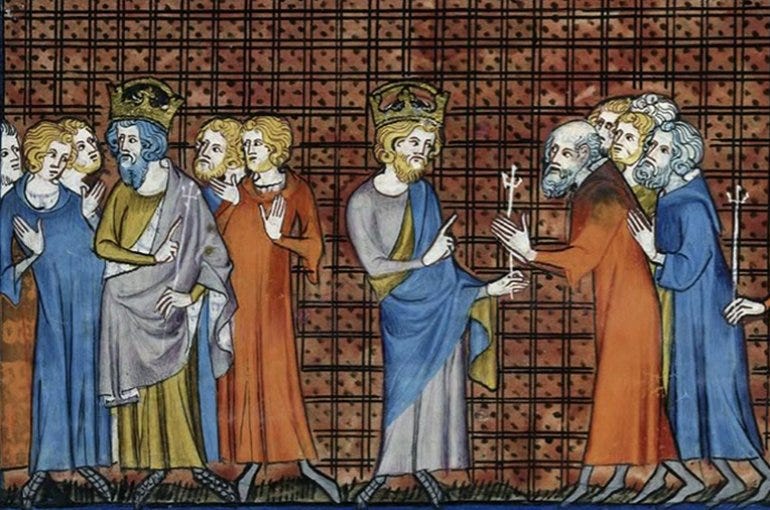Lush narrative history about a uniquely dynamic people
Review of Review of Normans in the South: 1016-1130 and Kingdom in the Sun: 1130-1194 by John J. Norwich
This is a popular history of the Normans, a Viking people that occupied NW France, got feudal recognition, and were absorbed into the local culture. They then expanded outward with exceptional dynamism. Theirs was an absolutely remarkable rise, from pillagers to nobility and finally, statesmen and relatively enlightened sovereigns. While their takeover of Britain (the last time the island was invaded, let alone conquered) is well known, their career in southern Europe has received relatively little attention. This wonderfully readable book fills the gap in a series of stories that are at once scholarly and fun.
When the Normans arrived in southern Italy, they were little more than a mercenary force, indeed pirates. They may have been able to boast they were born of French feudal lords, but they were essentially adventurers with nothing. Their brutality was as remarked upon as their thirst for status and glory. At the time of their arrival in 1016, peninsular Italy was uneasily divided between the Germanic Lombards, Greeks with ties to Byzantium, and the papacy. Sicily was occupied at the time by various sultans and local lords, a culturally rich if unstable mix with Greeks and Latins as well.
The Normans, and in particular the family of the Hautevilles, came onto the scene and clawed their way to the top. Robert, dubbed the Guiscard, became a major figure, eventually gaining the title of Duke of Apulia from the Pope, who anointed sovereigns all over western Christendom. With his brother Roger, with whom he occasionally warred, he brought order to the south and opened an invasion of Sicily. Though constantly at war with unruly lords sworn to him under feudal obligation, Robert was merciful and tolerant once in power, to the surprise of his critics. Both of them were leaders of genius, combining brute force with diplomacy, winning loyalty from locals, if sometimes allowing their knights to pillage conquered territories. Their rise is all the more remarkable in that they rarely had more than a few hundred Norman followers in their elite fighting forces, with locals making up the difference in infantry and shock troops.
Once Robert installed Roger in Sicily – with the barest beach head bases and a fighting force of 300 knights or so – he left him entirely to his own devices. Slowly, Roger conquered the island, toppling one Emir at a time, developing a navy, and patiently waiting out many a rebellion. Because he needed local support, he was tolerant of both Arabs and Greeks, allowing them to keep their religious observances and cultures while opening administrative and military careers to talent from their ranks. The result was an astounding success, with a leadership unusually enlightened for the times. Roger's only surviving son, Roger II, took over and continued these shrewd and prudent policies, playing off the rivalries of the papal court to be ordained as King of the South. That is where the first volume ends, with Sicily on the verge of becoming the greatest beacon of culture and commerce of its age.
In volume II, the story takes up at the moment when Roger II, the son, has been anointed by the Pope as sovereign of Sicily and a large portion of Southern Italy. Roger II earned this because he had been the only major political leader to support the Pope in a divisive schism, for which he was to prove decisively useful in exchange for the legitimacy conferred.
As king, it is he who garnered the loyalty by feudal oath and contract of the various lords who were installed in the many localities under his nominal control. Though much of his reign was taken up by quelling rebellions on the Italian peninsula (Norman lords wanted more influence than he cared to bestow), Roger II proved himself to be one of the ablest of feudal lords: while courageous in battle and willing to use force, he combined that with talents for diplomacy, great attention to administrative detail, a lively intellectual life, and a politician's luck in timing – and knowing when to wait, in particular in defense against Emperors who coveted his lands.
As a result, Sicily entered its only truly golden age, emerging as a major power in an era of petty autocracies, evolving empires, and religious strife; it became rich, building a number of architectural masterpieces (e.g., Cefalù cathedral), and tolerant of its many ethnic and religious groupings. Indeed, the way that Roger II balanced the various factions he contended with proves he had a first-rate political mind. As an administrator, he built a secure and prosperous state, with an eye to the long term. Unfortunately, once he was gone, his successors never displayed the combination of skills that Roger II was able to balance. While they could fight, most of them preferred to retreat to the pleasures of the court or their harems, living in luxury and decadence, hardly thinking of the future. It took over 50 years, but the Norman state eventually crumbled under their incompetence. Moreover, over 100 years, the ethnic balance shifted – more Latins at the expense of Greeks and Arabs, causing terrible strife.
Unfortunately, the coverage of the wider issues underlying the era is spotty. While inadvertently mentioned in asides, I would have liked much more detail about them. Norwich praises the eclectic culture that emerged with unprecedented tolerance (not usually a Christian virtue, but learned from the Moslem populations on the island), but I felt very hungry to learn more. I also did not get as good a sense of the political science that was operating during the period, i.e., how the feudal state was supposed to work, what powers the Pope had as spiritual and political overseer, and how the Holy Roman and Byzantine empires were governed, in particular during the Crusades. That was disappointing.
That being said, there is much to learn here – on Feudalism, the Papacy, and royal customs and behavior. Norwich is a truly masterful writer of popular histories. His greatest virtue is that he understands how to approach history as a story and through the dazzling personalities of the period, from Eleanor of Acquitaine and Richard the Lion Heart to Barbarossa and countless others. This book reads fluently and quickly, sustaining the reader's interest throughout. However, the analyses that are thrown in are sparse, as are references to culture and context. This is a delight to read.
Related reviews:
1400 years of glory, riches and Empire
This is a dazzling history of a unique political entity – an oligarchic republic surrounded by feudal autocracies, religiously moderate hundreds of years before toleration developed anywhere else, and with a highly profitable form of public-private capitalism. In this splendid book, the reader is treated to the entire arc of rise, reign, and fall, in lu…
Excellent survey history of the dark ages: academic, accessible, dense
While comprehensive, this survey history neither gets bogged down in obscure scholarly debates nor over-simplifies controversies on sources or interpretation for lay readers. Every page made me want to learn more in specialized sources. A demanding read, its level is advanced undergraduate or early graduate school.





